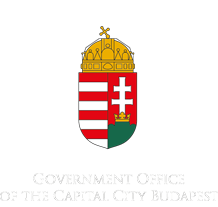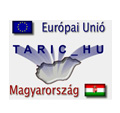
International Terrorism
Ms. Anikó KOVÁCS Head of Unit
Export Control Unit
Németvölgyi út 37-39, Budapest 1124/ Hungary
Phone: +36 (1) 458-5577
E-mail: exportcontrol--.at.--bfkh.gov.hu
Fight against terrorism
Sanctions against terrorism
The United Nations Security Council (UN SC) has introduced two separate sanctions regimes – which are binding on member states – to combat international terrorism. European Union member-countries implement these sanctions regimes through common positions and EU regulations.
UN SC sanctions regime 1267/1989/2253
The regime was introduced through Security Council Resolution 1267 (1999). Through several subsequent resolutions, the Security Council has introduced sanctions targeting Usama bin Laden, the Taliban and Al-Qaida, and against individuals, groups, undertakings and entities associated with them. Following bin Laden's death in 2011, the UN decided to differentiate the sanctions against the Taliban in a separate sanctions regime (see under sanctions against Afghanistan). The remaining parts of the 1267 regime became a sanctions regime against Al-Qaida through Resolution 1989 (2011). All of the applicable rules, including updates, were gathered in this resolution. In December 2015, the 1267 regime was expanded through Security Council Resolution 2253 (2015) to also cover ISIL (Da'esh), and the regime is also known as the 1269/1989/2253 regime.
To monitor compliance with the sanctions, the UN established the 1267 Committee (also called the 1989 Committee), which has also been instructed to compile a list of those targeted by the sanctions. All Security Council members are on the Committee.
Through various resolutions, the Security Council has subsequently produced better definitions of the criteria used by the UN. Resolution 1617 (2005) provides the definitions used for listing, the right to humanitarian exemptions regarding travel and frozen assets, stricter requirements regarding the basis for listing decisions and a procedure for de-listing requests. Resolution 1822 (2008) determined that a total review of older listings should be carried out, and that brief reasons should be published for all listings. The review was conducted in summer 2010, and regular reviews will subsequently take place of those listed. Resolution 2253 (2015) further expanded the criteria.
Information on the 1267 regime can be found on the UN Security Council website (http://www.un.org/en/sc).
The ISIL (Da’esh)and Al-Qaida Sanctions List is updated regularly on the basis of relevant information provided by Member States and international and regional organizations. The List is accessible on the Committee’s website at the following URL: https://www.un.org/sc/suborg/en/sanctions/1267/aq_sanctions_list.
The Consolidated United Nations Security Council Sanctions List is also updated following all changes made to the ISIL (Da’esh) and Al-Qaida Sanctions List. An updated version of the Consolidated List is accessible via the following URL: https://www.un.org/sc/suborg/en/sanctions/un-sc-consolidated-list.
The 1267/1989/2253 regime in the European Union
EU countries have implemented the UN sanctions through Council Decision (CFSP) 2016/1693, which repealed Common Position 2002/402/CFSP, and through Council Regulation (EC) No 881/2002, most recently amended by Council Regulation (EU) 2016/363. The EU has also introduced autonomous sanctions against ISIL (Da'esh) and Al Qaeda through Council Regulation (EU) 2016/1686.
Council regulations are directly applicable and binding in EU Member States and this regulation contains a list of those who, as a result of decisions by the UN Sanctions Committee, are targeted by the sanctions.
UN SC sanctions regime 1373
The name of this regime comes from Resolution 1373 (2001). The regime was established by the UN Security Council in response to the attacks of 11 September 2001 against the USA. The sanctions in this regime target individuals, groups and entities considered to be involved in terrorism, in addition to those covered by the 1267 regime. In this case, the UN has left it to the member states themselves to determine the targets of the sanctions.
The 1373 regime contains provisions on freezing assets and bans on making assets available to individuals and groups suspected of committing, attempting to commit, participating in or facilitating terrorist acts. The regime also contains a provision on expanded information exchanges and police cooperation between UN member states regarding individuals on the sanctions list.
For this regime the UN has established the Counter-Terrorism Committee (CTC), tasked with monitoring implementation of Resolution 1373 (2001). The Committee is comprised of the countries that are members of the Security Council.
The 1373 regime in the European Union
This regime has been implemented by EU Member States through a legislative package consisting of the two Common Positions (2001/930/CFSP and 2001/931/CFSP) and Council Regulation (EC) No 2580/2001.
Individuals to be covered by the sanctions are included on lists in annexes to Common Position 2001/931/CFSP and the Council regulation. These lists are established by the Council by unanimous decision and have been updated on a number of occasions. A review of these lists is conducted every six months and separate revisions can be made in between. The result is determined through new common positions with a revised annex. These are published shortly thereafter on the general European Commission sanctions website.
The working methods mean that those that have their assets frozen in accordance with EU regulations for implementation of Resolution 1373 (2001) are to be informed of the decision and given sufficiently detailed reasons that are that they are able to understand the grounds for the decision. Individuals and groups affected are also to be given the opportunity to submit information in support of a request to be removed from the list, and be informed of the option of instituting an action against the Council decision at the General Court of the European Union.
An additional measure that strengthens legal certainty is that the working methods and procedures concerning EU decisions on sanctions against terrorism and review are now public.































